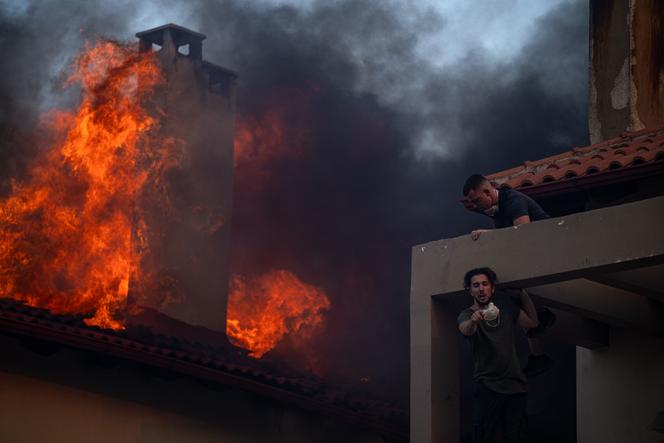
Greece on Sunday, July 27, was battling wildfires that have ravaged homes and sparked evacuations, with Czech firefighters and Italian aircraft being deployed to help. Firefighters were working on five fire fronts late Sunday in the Peloponnese area west of Athens, as well as on the islands of Evia, Kythera and Crete.
“Today is expected to be a difficult day with a very high risk of fire, almost throughout the territory,” fire brigade spokesman Vassilis Vathrakogiannis said, though he added that the situation was improving.
Forecasters predicted that strong winds that have been fanning the flames would die down on Sunday in most areas. But they warned that Kythera, a popular tourist island with 3,600 inhabitants, continued to face “worrying” conditions. Evacuation messages were sent on Sunday to people on the island, which lies off the southeastern tip of the Peloponnese. Giorgos Komninos, deputy mayor of Kythera, told the state-run ERT News channel that half of Kythera had been charred: “Houses, beehives, olive trees have been burnt,” he said.
ERT reported that a broad fire was still burning on the island late Sunday, but in smaller fronts, and the situation was improving. Dozens of firefighters supported by three helicopters and two aircraft were battling the Kythera blaze, which erupted Saturday and forced the evacuation of people stranded on a popular tourist beach. Local authorities have requested a state of emergency so that stepped-up assistance can be provided for the island, which was previously stricken by a major fire in 2017.
‘Titanic’ struggle
Eleven regions of Greece still face a very high fire risk, according to officials. Greece requested EU help on Saturday, and two Italian aircraft were expected to arrive on Sunday, the fire brigade said. Units from the Czech Republic were already at work. Numerous flare-ups were reported overnight on the island of Evia, near Athens, where flames laid waste to swathes of forest and killed thousands of farm animals. Workers have toiled throughout the day to repair serious damage to Evia’s electricity network and some villages were facing water supply disruptions.
Farther south, on Crete, reports said fires that started Saturday, destroying four houses and a church, were now largely contained. In Kryoneri, north of Athens, police reportedly bolstered security as fears grow that looters could target houses abandoned by residents fleeing a fire that erupted Saturday but which was mostly contained on Sunday.
Prime Minister Kyriakos Mitsotakis wrote on social media that anyone who lost possessions “should know that the state will be by their side.” He said the struggle to block the flames on Saturday had been “titanic” but “the picture today looks better and the battle continues with all available resources.”
Greece has endured heatwave conditions for a week, with temperatures passing 40°C in many areas. On Saturday, the temperature reached 45.2°C in Amfilohia, in western Greece. The extreme heat was expected to subside from Monday.
New
Le Monde’s app
Get the most out of your experience: download the app to enjoy Le Monde in English anywhere, anytime
Download
Last month, fires on Greece’s fifth-biggest island of Chios, in the northern Aegean, destroyed 4,700 hectares of land, while in early July, a wildfire on Crete forced the evacuation of 5,000 people. The most destructive year for wildfires in the country, which is deemed a climate-change hotspot, was 2023, when nearly 175,000 hectares were lost and there were 20 deaths. Greece, like many countries, is experiencing hotter summers stoked by human-induced climate change, which increases the length, frequency and intensity of wildfires.